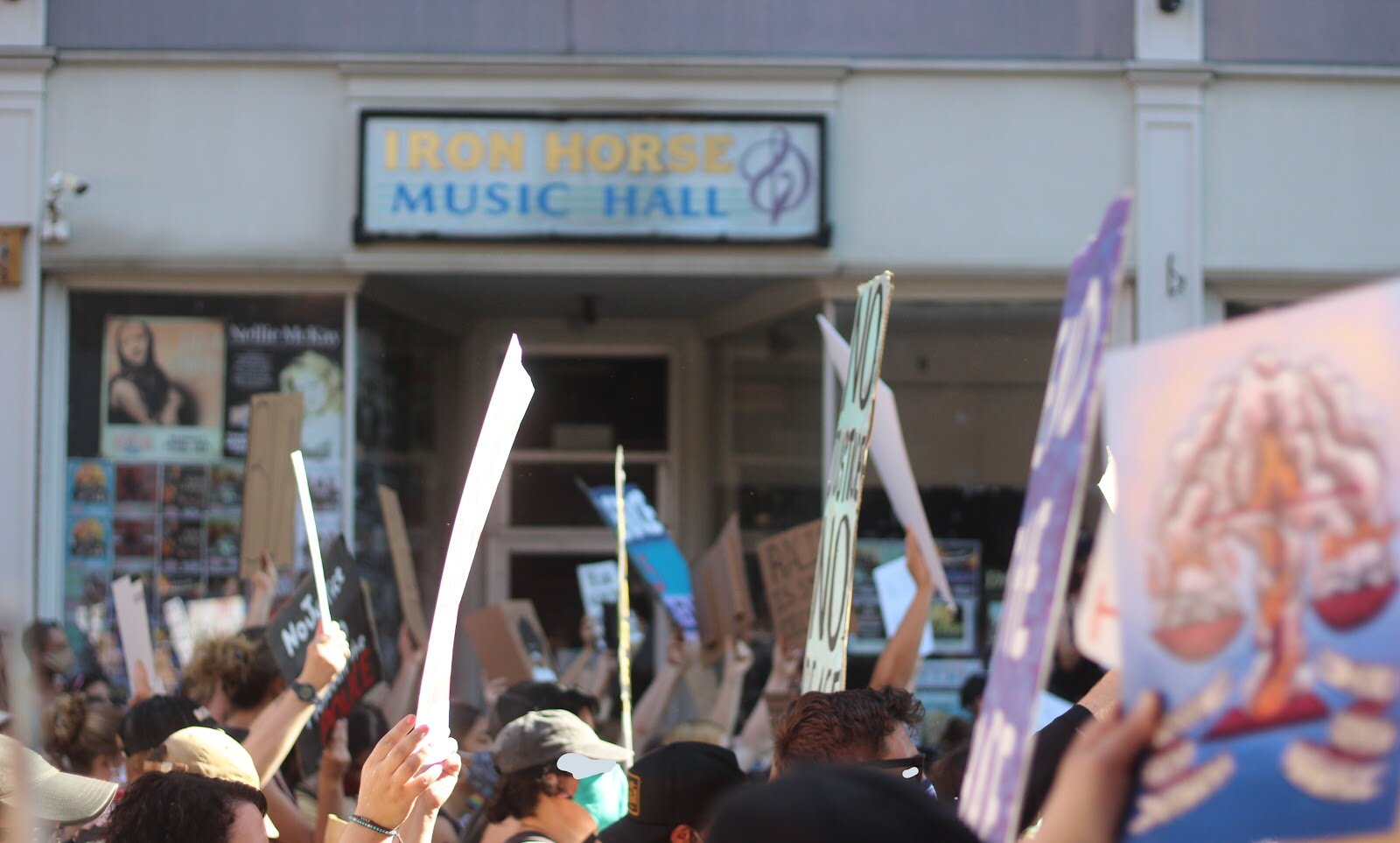Photo by Ali Meizels ’23
As Black Lives Matter protests continued to sweep the country in June, many activists used music to support their cause.
By Hiba Nawaid ‘23
A&E Reporter
Alongside June’s protests fighting for racial equality, American musicians stepped up to lend their art to the cause. A wave of protests against police brutality swept the country following the murders of George Floyd, Ahmaud Arbery, Breonna Taylor and many more. Additionally, Juneteenth commemorated the emancipation of slaves in 1865, making the month even more significant in American history. Impacted by the mounting political upheaval, the music community responded by extending both its art and its influence on the Black Lives Matter movement through the release of numerous protest songs throughout the month.
Perhaps the most prominent music release was Beyoncé’s “Black Parade.” The song dropped on Juneteenth, a day of increased significance in Beyoncé's home state Texas. In 1865, two years after President Abraham Lincoln's Emancipation Proclamation, the news was finally announced. Beyoncé references her home in the lyrics of the song, saying, “I'm goin' back to the South/I’m goin' back, back, back, back/Where my roots ain't watered down.”
Proceeds from the song go toward the artist’s BeyGOOD's Black Business Impact Fund to support small Black-owned businesses. The “Black Parade” release was also accompanied by the launch of a Black-owned businesses directory on Beyoncé’s official website, put together by herself and her longtime stylist Zerina Akers. Businesses featured on the website fall under the categories of arts and design, beauty, fashion, home and living, lifestyle, restaurant and bars, services and wellness.
H.E.R. was another Grammy-winning artist who released music in protest of rampant police brutality. Premiering through an iHeartRadio Living Room concert on June 10, her poignant song “I Can’t Breathe” features a spoken-word bridge that calls out generations of racial injustice and white supremacy, as well as performative activism. Proceeds from the song on YouTube go to the Black Lives Matter movement.
Similar to H.E.R., Dua Saleh also released the single “body cast,” donating proceeds to the Black Visions Collective. Based in Minneapolis, the singer-songwriter initially wrote “body cast” following the death of Philando Castile in 2016. However, with the lyrics still being painfully relevant, she released the song on her Bandcamp in response to the death of George Floyd. The intro of the song samples Angela Whitehead, a woman who found two police officers trying to enter her home in Billings, Montana, without a warrant or cause and, recognizing the violation of her rights, forced them to leave.
Many protest songs also made a point of the ongoing pandemic. One such release was Anderson Paak’s “Lockdown.” The song’s music video, directed by Dave Meyers, shows musicians Jay Rock, Andra Day, SiR, Syd (of The Internet) and Dominic Fike gathering at a deserted restaurant with face masks and growing bruises, illustrating the aftermath of an unexpected riot. The end of the video shows names of victims of police brutality and a notice that the artist’s organization, Paak House, has donated funds to Action Bail Fund LA, Atlanta Solidarity Fund, Albany Safety Fund for Black Lives and Dream Defenders.
Another notable release is Lil Baby’s “The Bigger Picture.” According to Forbes, it is the most-streamed protest track in the month-long period of June. The music video was filmed at a Black Lives Matter protest in Atlanta. It includes sound snippets of news about the ongoing protests and footage of the protests. Lil Baby can be seen marching next to Atlanta City Councilman Antonio Brown. The proceeds from the song go to the National Association of Black Journalists, Breonna Taylor’s attorney, The Bail Project and Black Lives Matter.
These are not the only instances of protest music released in support of anti-racism movements. Many songs have often been used in protest and associated with Black Lives Matter. In 2015, Kendrick Lamar performed his song “Alright” at the BET Awards show standing atop a vandalized police car, condemning the violent mistreatment of Black people in the country. That year, the song was also chanted by a crowd of protesters protecting a 14-year-old boy, who was arrested and beat up for alleged public intoxication, from being taken into custody. The altercation occurred in Cleveland outside a Movement for Black Lives conference. After being treated by EMTs, the demonstrators blocked police cruisers to allow the boy to be released to family members, linking arms and singing “Alright.”
Over the years, music has served in mobilizing community members and summoning a collective spirit of protest in demonstrations against oppression, especially racial injustice. This year it has become even more clear: As protests go on, artists will continue to step up and use their craft to contribute their voices and influence to the movement.

